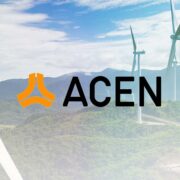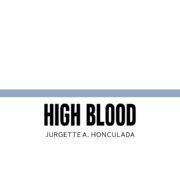Japan as PH economic ally

Given the disruption to global trade caused by US President Donald Trump’s unilateral tariffs on dozens of countries it trades with, the two-day visit of Japanese Prime Minister Ishiba Shigeru last week on the invitation of President Marcos presents an opportunity for the Philippines to look to Tokyo, not only for defense and regional security, but for enhanced trade and economic partnership as well.
Our East Asian neighbor, for instance, has promised to help the government reach the elusive goal of hitting the upper middle-income status that has the potential of attracting more foreign investments. After a bilateral meeting between the two leaders, Ishiba announced that Japan is ready to assist the Philippines achieve this through a range of cooperation activities. Ishiba said that he had conveyed to Mr. Marcos that Japan will cooperate with the Philippines and make use of “uniquely Japanese strengths” for the country to aim for this upper middle-income status, citing a package of cooperation covering telecommunications, the Azec (Asian Zero Emission Community) plan, energy, mineral resources, infrastructure, and disaster risk reduction, among others.
To be an upper middle-income economy means having a per capita gross national income (GNI)—or the total amount of money earned by a country’s people and businesses at home and abroad—of between $4,516 and $14,005, according to the World Bank. Despite posting a record high GNI per capita of $4,230 in 2023, the Philippines has remained stuck in the lower middle-income classification since 1987.
Conducive environment
A potential drawback once the country achieves this economic income status is that the Philippines will receive less Japanese official development assistance (ODA), but Tokyo said the country can expect higher investments in return. Japanese Foreign Ministry press secretary Toshihiro Kitamura, who accompanied Ishiba, also assured the country that development assistance that creates a conducive environment for investments and businesses in the Philippines will be among the possible ODAs that will stay. “ODA is not the only tool to support the economic growth of the country, we also mobilize our private sources. As for the Philippines, there are more than 1,600 Japanese companies operating here, and we’d like to support further investment of Japanese companies here,” Kitamura promised.
While security concerns took center stage, the two leaders’ meeting last week also discussed bolstering public-private partnerships in telecommunications, especially in submarine cable infrastructure and 5G technology; energy cooperation, particularly the development of LNG facilities and securing resilient energy supply chains; promoting a stable investment environment; and infrastructure development and agricultural collaboration.
Local farm sector
Agriculture is one major area of potential cooperation that the Philippines must look into now, with Ishiba noting the President’s very deep insight into agriculture. Mr. Marcos’ keen interest in improving the farm sector was evident from the start, when he took the post of acting agriculture secretary upon assuming the presidency in 2022. Ishiba, for his part, is also hopeful of further cooperation in agriculture since he once served as Japan’s minister of agriculture, forestry, and industries. “In the agricultural arena, I very much hope that we can further deepen our cooperation,” Ishiba said. Given this, the Department of Agriculture should initiate discussions with its counterpart in Japan to give substance to the two leaders’ keen interest in improving the local farm sector, especially in the areas of boosting productivity, expanding areas for high-value crops, and opening the Japanese market to more Philippine agricultural products.
Reliable and steadfast
Expanding economic ties with Japan is also easier than forming new ones with other countries, as Mr. Marcos himself noted when he visited Tokyo in February 2023. “Japan is different from the other places that we’ve been wherein we just [started] the conversations. Our government-to-government and even commercial interactions with Japan are very well-developed,” the President pointed out.
As the President again emphasized last week, Japan is a “reliable and steadfast partner in the region.” Speaker Ferdinand Martin Romualdez likewise emphasized how Japan, the Philippines’ second-largest trading partner, has played an “indispensable role in supporting our development, economic security, and national resilience,” adding that during this time of rising global uncertainty, Japan is more than a close neighbor; it is “a steadfast ally, a trusted friend, and a vital partner [and our relationship] has been strengthened by decades of trust, respect, and cooperation.”
Ishiba has invited the President to visit the Osaka Expo 2025, which opened last April and will run until October. Accepting the invitation will also go a long way in boosting the country’s economic relationship with Japan.





















